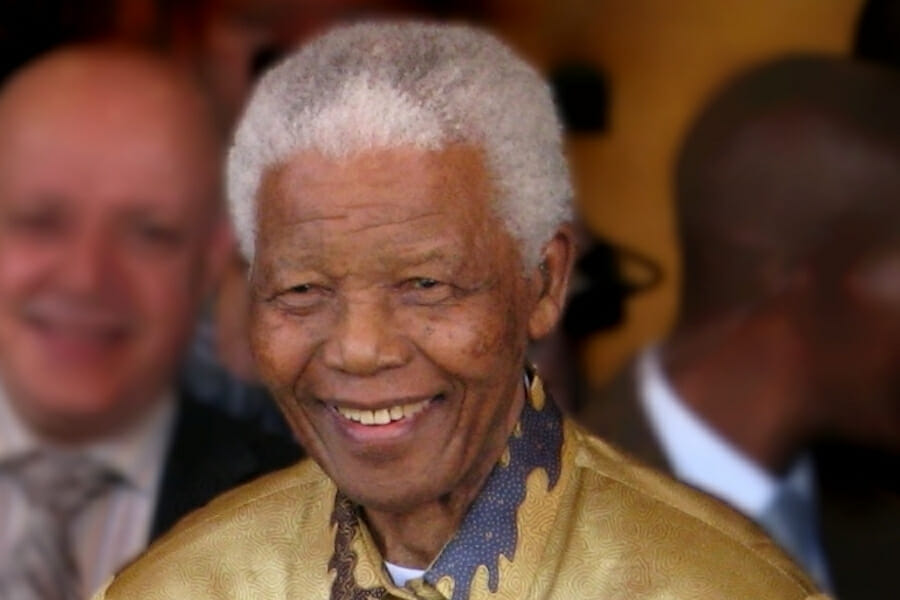
Remembering Mandela’s Foreign Policy
When I heard the news that Nelson Mandela, our beloved Madiba was gone, I had flashbacks to the first time I laid eyes on my South African wife. I didn’t know much about South Africa at the time, and for some reason or another, I kept calling her Mandela over the course of the entire evening. Thinking back, why she agreed to a date is beyond me. However, the point I am trying to make is even as a very young international relations student, an American who had never left the borders of the United States, I knew about Mandela and what he stood for. Today, our beloved Madiba is gone. Much is being said about his values and principles that made him a global icon. And it was Nelson Mandela’s international stature and profile in the early and mid-1990s which often became South Africa’s image, and in some cases, its foreign policy.
When Mandela became South Africa’s first black president, he and South Africa as a nation became a symbol for reconciliation and bringing peace for having overcome apartheid. Speaking at Harvard University after receiving his honorary doctorate in 1998, Mandela stated that Harvard embodies the spirit of universality which marks a great university. “To join the ranks of its alumni is to be reminded of the oneness of our global world…Hence our universal obligation towards the building of a world in which there shall be greater equality amongst nations and amongst citizens of nations,” Mandela reiterated.
He adopted this principle of universality under similar lines in South Africa’s foreign policy. It was a view that encompassed universal liberal ideals and human rights which became evident as South Africa assisted in mediating incidents in Asia and Europe. This included Northern Ireland and East Timor with Mandela assisting the latter by meeting with imprisoned East Timorese leader, Xanana Gusmao, in July 1997 and calling for his release.
Mandela used diplomacy as a tool to help solve other conflicts and indeed he did use his saint like persona in places like Zaire (Democratic Republic of the Congo), helping to end the civil war in 1997. At the time, he was the first head of state to make a public appearance with rebel leader Laurent-Desire Kabila. Mandela also assisted in issues such as the Lockerbie bombing that occurred in 1988 but whose implications lasted much longer. Mandela was highly praised for his help in persuading Libya to hand over two suspects wanted in connection with the Lockerbie bombing, when two Libyan intelligence agents bombed Pan Am flight 103. Even after his presidential term ended, he was still busy pursuing peace in nations like Burundi.
Involvement in places like Burundi, Libya and Zaire, amongst others, showed President Mandela’s clear foreign policy vision and the roles he and his colleagues envisaged for South Africa. Mandela and Pretoria in general felt a great responsibility and loyalty towards Africa with a particular focus on the Southern African region. One can argue that the greatest feature and strength of South Africa’s foreign policy since 1994 has been its identification and engagement with the rest of continent and with issues important to Africa’s leaders and its citizens. A 1994 article by Mandela entitled “The Future of South Africa” further displays South Africa’s leanings towards Africa: “South Africa cannot escape its African destiny. If we do not devote our energies to this continent, we too could fall victim to the forces that have brought ruin to its various parts. […]Southern Africa commands a special priority in our foreign policy. We are inextricably part of southern Africa and our destiny is linked to that of a region, which is much more than a mere geographical concept.”
However, not everyone was happy with Mandela’s stance on certain issues, especially when he took the moral high ground in dealing with Nigeria in 1995. He recalled the South African High Commissioner from Nigeria, urged the United Kingdom and the United States to impose oil sanctions, requested United Nations action and called for a special Southern Africa Development Community meeting to discuss the issue. Unfortunately for Sara Wiwo and the other political activists, Mandela’s actions proved to be fruitless, and his fellow Africans criticized him for not learning the unwritten continental code that African states shouldn’t turn against each other.
Other questions were raised about South Africa’s support of universal human rights, especially from the West. Many Western leaders due to South Africa’s positive relations frowned upon Mandela’s relationships with certain individuals and countries who were human rights abusers but had formerly supported the African National Congress while they were in exile. This included Cuba’s Fidel Castro, Libya’s Muammar al-Qaddafi and the PLO’s Yasser Arafat.
There were also strong criticisms internally that South African foreign policy had descended into an inexcusable ‘ad hocery’ of case by case decision made without any discernible framework, and that South Africa’s foreign policy ‘was too driven by the whims’ of President Mandela.
Mandela was further criticized towards the end of his presidential term which saw a shift away from traditional diplomacy to a foreign policy that was more about economic policy. Only two weeks after Mbeki became the President of the ANC, Mandela made the announcement that South Africa would normalize relations with China, even though Taiwan was South Africa’s longtime ally and significant foreign investor. Today, Chinese President Xi Jinping said Mandela was also “one of the founders of China-South Africa relations and an active champion of bilateral friendship and cooperation.”
Nevertheless, Mandela and then Deputy President Thabo Mbeki spent most of their time out of the country establishing and furthering diplomatic relations. Both men made 46 foreign visits in a period of 18 months from January 1996 to June 1997 and another 40 in a period of 13 months from July 1997 to July 1998. This can be seen as one of Mandela’s greatest foreign policy achievements; helping transform a pre-1994 South Africa with its bilateral relations with approximately 20 to 30 countries to bilateral diplomatic relations with well over 100 countries in the post-1994 environment.
Overall, South Africa’s foreign policy during Mandela’s term could be seen as ‘idealism’ i.e. the importance of moral values and universalism. This was evident in his attempt to achieve a peaceful settlement in Nigeria. In the years to come, Mandela will be remembered for his triumphant fight against apartheid, a symbol of freedom. However, he will also be remembered as a champion of reconciliation which we often saw reflected in his foreign policy.
Rest in peace Tata Madiba. You will never be forgotten.

